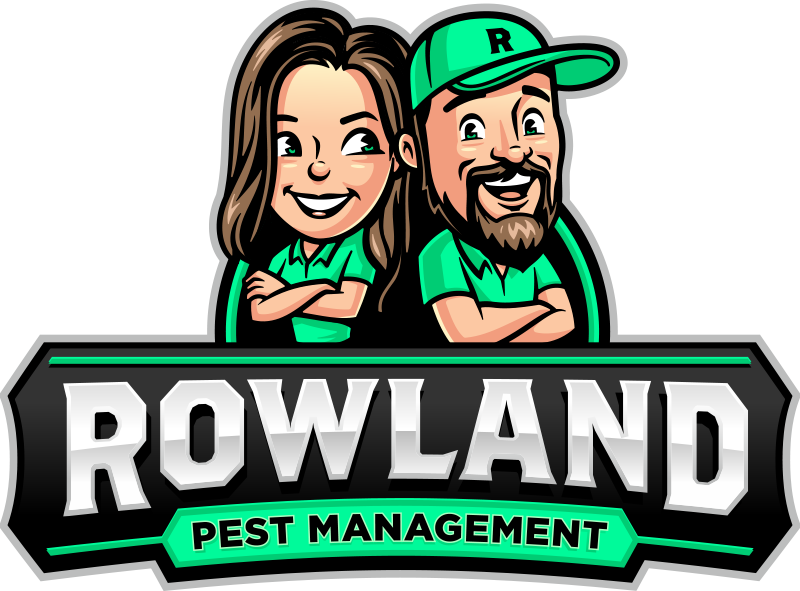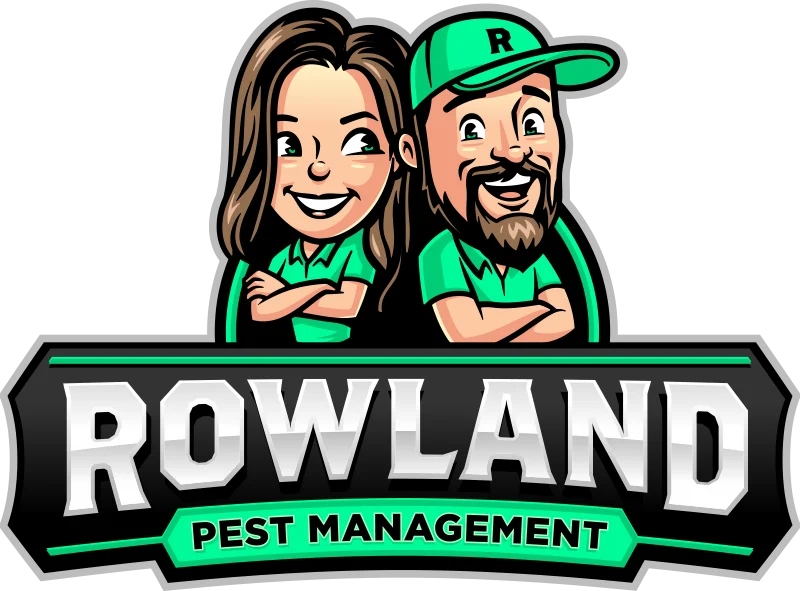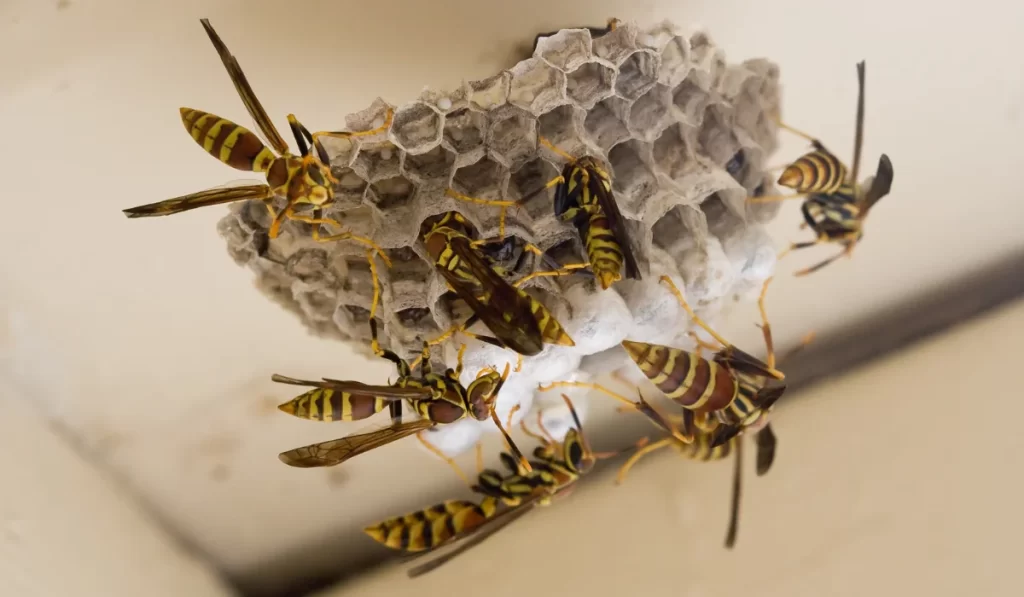In Florida, where the sun rarely rests and outdoor space is part of everyday life, dealing with wasps becomes a seasonal struggle. These stinging insects are a safety hazard for homeowners, especially during late summer when wasp activity peaks.
If you’ve spotted a wasp nest or noticed more buzzing than usual, you might be dealing with a wasp infestation. But before you reach for a spray bottle or attempt a risky DIY fix, let’s talk through five expert-approved strategies to safely and effectively get rid of wasps.
Key Takeaways
- Food and trash left outside can attract wasps, so clean up and seal garbage cans to prevent problems.
- Gaps in siding, eaves, or attics can let wasps in, so seal those spaces to stop nest building.
- Visible nests or wasp activity around your home can mean an infestation, so early detection is important.
- Store-bought sprays and traps are risky and unreliable, so professional pest control is the safest solution.
1. Cut Off Their Food Sources
One of the most natural ways to reduce wasp problems is by making your home less appealing. They are drawn to sugary drinks, protein scraps, and exposed compost. Open garbage cans, pet food bowls, or even caterpillars in your garden can all attract certain species of wasps.
By eliminating these food sources, especially during peak activity in Florida’s heat, you help prevent them from setting up camp. Secure trash lids, clean up spills, and avoid leaving sweet drinks unattended, especially outdoors.
2. Seal up Entry Points and Nesting Sites
Wasps don’t need much room to build nests. Small crevices around your home, especially near attics, siding, or vents, can become prime nesting sites.
For instance, mud daubers and other solitary wasps often prefer tucked-away locations, while bald-faced hornets and paper wasps build nests in more visible areas like roof overhangs and tree branches.
By caulking cracks, reinforcing window screens, and sealing entry points around doors and eaves, you make your home far less inviting.
This approach is especially helpful in keeping future activity at bay.
3. Watch for Papery Nests and Signs of Infestation
Early detection is key to effective wasp control. Check for papery nests under decks, behind shutters, and even on playground equipment. Don’t overlook hornet nests, which tend to be more spherical and found higher up.
You might also see larvae or frequent wasp traffic in one area, sure signs you’re dealing with a developing infestation.
Each of the many types of wasps behaves differently, so identifying the species is important. That’s why it’s best to call a wasp exterminator who can recognize whether you’re dealing with aggressive yellow jackets or less-aggressive mud daubers.
4. Why DIY Wasp Sprays and Traps Often Don’t Work
From peppermint oil recipes to dish soap mixes, DIY wasp spray ideas are everywhere. Some even use essential oils or sugar water in homemade wasp traps.
But here’s the problem: without the right tools or protective clothing, you risk painful stings or worse, triggering allergic reactions. Not all wasp repellents work on every species, and disturbing a nest could lead to an aggressive swarm.
Instead of hoping a trap catches the queen or that a homemade spray neutralizes a hornet nest, rely on pest control services that know how to safely kill wasps and prevent recurrence. They can ensure the job is done safely and thoroughly.
5. Call a Professional Pest Control Company
There’s no substitute for trained pest control professionals when it comes to wasp management. At Rowland Pest Management, we know Florida’s climate and the wide variety of stinging insects that thrive here.
Our wasp control services include detailed inspections of your property, identification of the species, and safe removal of the nest, whether it’s on a tree branch or 25 feet up near your roofline.
We understand how different wasps build nests and behave.
That’s why we tailor our approach for each home, ensuring your outdoor space stays pest-free for the long haul.
Our pest control company also prioritizes the safety of pollinators like honeybees, ensuring we target only the pests that pose a threat.
Reach out now for your free quote and reclaim your yard from painful stings and buzzing intruders.
Frequently Asked Questions
Here are some common questions homeowners in Florida often ask about wasps that go beyond just removing a nest:
How can I tell the difference between wasps and honeybees?
Wasps have smooth, shiny bodies and thinner waists. Honeybees are fuzzier, rounder, and less aggressive. Wasps build papery nests, while honeybees live in waxy hives and focus more on pollination.
When are wasps most aggressive during the year?
Wasps become more aggressive in late summer and early fall. Food sources start to run out, and they’re more protective of their nests, increasing the chances of stings near your home.
Are wasps helpful for the environment?
Yes, wasps help control other pests like caterpillars, flies, and spiders. Some species also contribute to pollination, although not as effectively as honeybees, by feeding on nectar from flowers.


